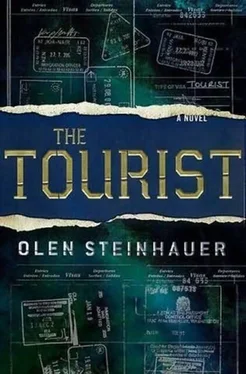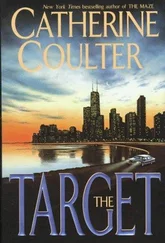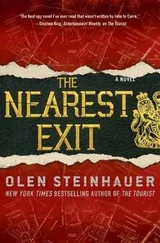His head spun. Anyone could have switched her sleeping pills. The French? They had probably realized, soon into Einner's flower-van surveillance, that Angela was being watched. But again: Why? She was on good terms with French intelligence.
The answer-if, indeed, he ever found one-would come via Herbert Williams, a.k.a. Jan Klausner, the Tiger's client. A man with a face but no identity, serving the interests of X.
Too many variables; too much unknown. He clutched at his cigarette and inhaled deeply. Then, remembering, he took out his iPod and asked France Gall to sing away his anxiety… but she just couldn't pull it off.
Tom Grainger's enormous apartment at 424 West End Avenue, at Eighty-first Street, had been purchased by his wife, Terri, two years before she succumbed to breast cancer. The West River House was a magnificent place for any Company man to live in, and occasionally people grumbled suspicions about how he could live so well. But other than the penthouse and a little lakeside home in New Jersey, Grainger owned nothing, most of his own money having been sapped during his wife's long and unsuccessful treatment.
For twenty minutes, as the sun moved behind the towers, Milo watched from the shadows of the glass-shelled Calhoun School across the street. Other residents returned from jobs, the perky doorman chatting with each one, and a few deliverymen from FedEx, Hu Sung Chinese, and Pizza Hut arrived. He walked around to the underground parking lot on Eighty-first and followed a Jag down the incline. He took a circuitous path around the edge of the lot, avoiding security cameras.
It was a path he'd charted out before, on other occasions when he'd wanted to meet the old man undetected and discuss things neither was supposed to know. The only trick was the entrance to the stairwell, which was watched by a camera lodged in the ceiling. There wasn't anything to do about that other than to cross into its field of vision facing away from the camera, so that all it picked up was a man of average height heading inside.
He climbed the whole way up to the eighteenth floor and rested in the stairwell, waiting in the silence for six o'clock to arrive. When it came, he tugged open the door and peered into the soft-lit corridor, then jerked back. In a chair at the end of the corridor sat one of the FedEx deliverymen, a box leaned against his chair, fooling with an iPod.
Milo squatted by the cracked door and closed his eyes, waiting for the sound of him making his delivery, or the pleasant ding of the elevator arriving to take him back to the lobby, but after five more minutes he still heard nothing. That's when he knew. Again, he peered out, and this time the man's eyes were shut, the iPod plugged into one ear. From the other, Milo noticed a flesh-colored wire that led down to his collar.
Softly, he let the door fall shut. It was the call. The Company had either traced Grainger's warning call from last night, or-and he now realized his mistake-using the phone logs, they had traced the call from Gerry Ellis Cleaners to a pay phone.
There was nothing, then, to do. Milo returned to the bottom of the stairwell, removed his jacket and held it in a ball to his stomach, then entered the parking lot backward. To the camera, he looked like someone carrying a box. He left the building.
Tom Grainger was no fool. He'd been in the field during half the cold war and certainly knew what was going on. So Milo returned to the shadow of the Calhoun School, sat on a ledge, and waited. After an hour, a passing hippie bummed a cigarette, and in answer to the man's question, Milo said he was waiting on his girlfriend. "Women these days, eh?" said the hippie.
"Yeah."
Milo 's patience paid off. A little after seven, the city now lit by its own artificial illumination, the doorman let Grainger out. Milo watched him turn the corner onto Eighty-first, heading toward Central Park. Grainger didn't look around. A minute later, the doorman appeared again, opening the door for another man-in a suit, not a FedEx uniform-who stepped out onto the sidewalk and, talking on his cell phone, also walked down Eighty-first.
He knew that second man-Reynolds, a forty-five-year-old ex-field agent who'd recently ended his embassy tenure. Milo followed, a half block back.
All three men crossed Broadway and turned left on Amsterdam, where Grainger went into the Land Thai Kitchen at number 450. The shadow took a position across the street by a Mexican restaurant, Burritoville, while Milo waited at a southern corner of the block, groups of young diners swarming past him.
The old man was inside less than ten minutes, emerging with a plastic bag full of takeout boxes. Milo withdrew into the shadows. Grainger appeared at the corner, the bag high so he could peer inside. Beside a trashcan, he stopped.
He could also see Reynolds, a few doors back, watching Grainger take out a box, sniff, open it up, and put it back in. Then he took out a much smaller box, sniffed, made a face, then opened it. He shook his head in disgust, tossed the box into the trashcan, and continued back up Eighty-first, toward home. Reynolds followed, but Milo didn't.
The whole walk here, Milo had watched out for a second or third shadow. Three-man teams were the norm for intensive surveillance work, but it had struck him that Fitzhugh-and Fitzhugh had to be the one behind this-had assigned Reynolds to the job; Reynolds, who was off active duty. Fitzhugh wanted to keep this quiet and had decided on a skeleton crew: Reynolds and the FedEx man Milo didn't know.
Once they were out of sight, Milo jogged up to the trashcan, snatched the light, nearly empty takeout box, and kept moving swiftly up Amsterdam, then east on Eighty-second until he reached Central Park. Along the way, he'd opened the box, taken out the single slip of paper, and dropped the box into another trashcan.
Near a streetlamp, he paused among some Japanese tourists discussing the details of a map. He unfolded the small square of notepaper and cursed Grainger for his brevity. He'd given no answers, only the tools to find them. Perhaps, though, the old man was just as in the dark as he was.
After a scribbled international cell phone number, he read:
E in Frankfurt:
The Last Camel / Collapsed at Noon
and a single word:
Luck
While waiting for his ten o'clock Singapore Airlines flight in JFK's recently reopened Terminal 1, pushing back his desire to fly instead to Florida and collect his family, he rechecked his belongings and added a few things from the gift shops: an extra T-shirt, underwear, a digital wristwatch, and a roll of duct tape.
Then, after passing from the United States into that stateless netherworld of the duty-free international terminal, he joined other travelers at the Brooklyn Beer Garden. He found a lonely Dutch businessman who kept his cell phone on the table. The Dutchman, he learned, was heading to Istanbul, trading in pharmaceuticals. Milo bought the man another beer and told him he sold advertising airtime for NBC. The Dutchman was intrigued enough by Milo 's off-the-cuff story to get up and buy two more beers in return. While he was at the bar, Milo took the man's cell phone, popped it open under the table, removed the SIM card and replaced it with the one from his phone, then put it back on the table.
Before boarding, he turned on his phone and used the Dutchman's SIM card to call Tina. She answered on the third ring with a wary "Yes…?"
"It's me, hon."
"Oh," she said. "Hi."
The silence was unnerving, so he broke it. "Look, I'm sorry about-"
"What are you saying?" she said, edgy. "This isn't the kind of thing you just say sorry to. It doesn't work that way, Milo. I need more."
A light, girlish voice in the background said, "Daddy?"
Читать дальше
Конец ознакомительного отрывка
Купить книгу












